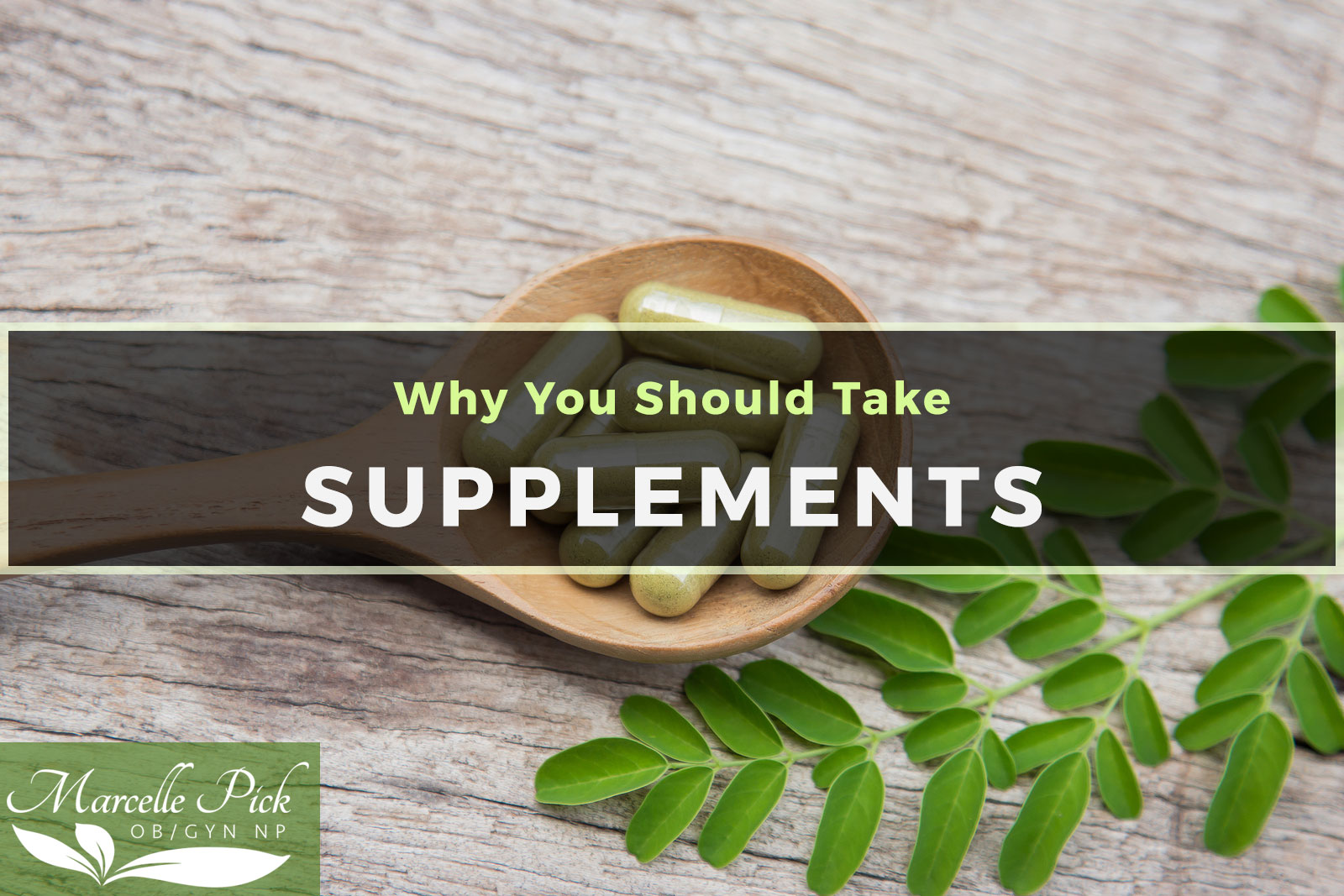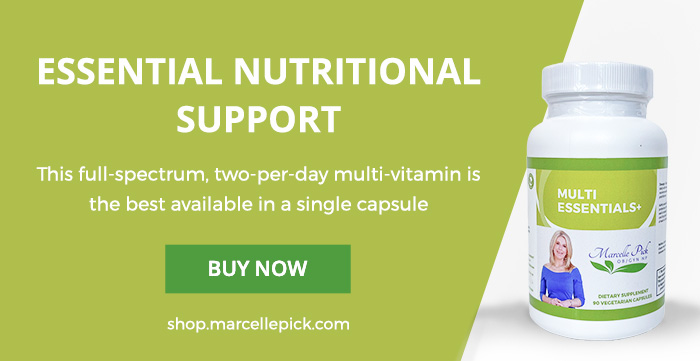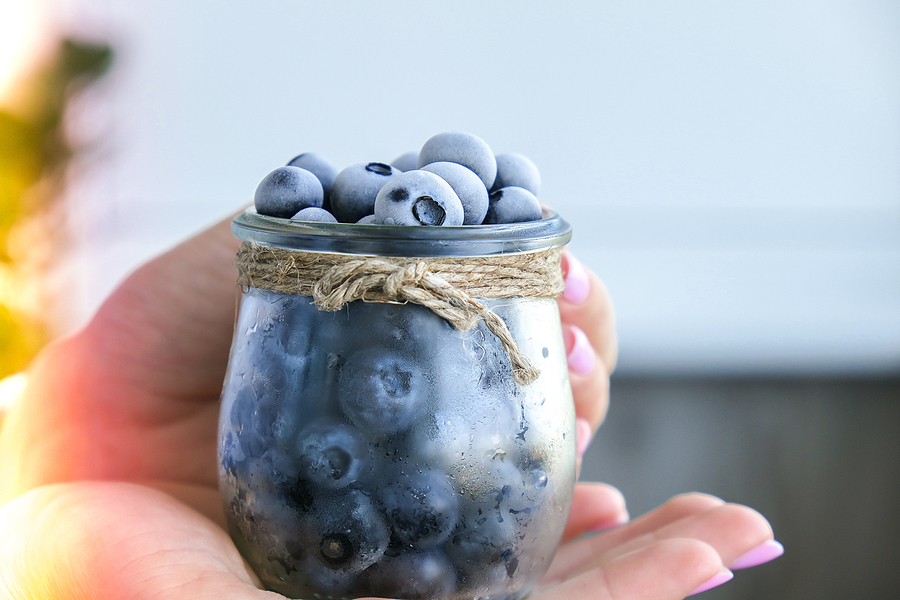I had a patient in the clinic the other day who, at the end of our time together, told me she’d never been listened to so closely by a medical professional. She was so used to doctors rushing in and out, in six minutes or less, that the length of time I spent with her almost made her nervous! Immediately, I reassured her that our long conversation didn’t mean there was anything “wrong” with her. I simply need that much time to really hear and understand the concerns and symptoms women bring to me.
So, for my patients, I ask a lot of questions and I really listen to their answers!
What kind of questions do I ask, you might wonder? It may come as a surprise to hear that they aren’t always about specific issues. Before I can even think about diagnosing a problem, I have to understand exactly what is going on in these women’s lives.
As it turns out, lifestyle choices impact my patient’s bodies far more than most of them know. So I start with questions like: How much sleep do you get? What is the quality of your sleep? How much stress do you have in your life? Do you exercise? If so, what kind of exercise do you do, and how often? What foods do you eat? How much do you eat?
I’m both amazed and saddened by how many women tell me that this is the first time a medical professional has asked them these kinds of questions. I’m also very understanding of these misunderstood women because it’s nearly impossible to get symptoms – like weight gain, fatigue, headaches, mood difficulties and so much more – under control and restore balance to vital body systems like your thyroid, adrenal and hormones, if you don’t first understand and address nutrition and lifestyle.
One Simple Thing You Can Do to Take Control of Your Health
Some women are so excited to hear that they have more control than they thought over their symptoms that they are ready to dive in headfirst, making big changes immediately. These women are fed up with feeling lousy, and feeling like they just aren’t themselves anymore.
But many more women need to dip a toe in the water first. The idea of changing longtime eating habits, getting more exercise, changing sleep patterns, or really examining the stress in their lives is too overwhelming. I help these women ease in by showing them how to make small changes that can make big differences in how they are feeling over time.
Related article: 5 Healthy Eating Habits & How to Look Beyond the Food You Consume
Neither approach is right or wrong. Women are individuals, and each must find what works for her. Jumping right in only to quit three days later won’t help a woman heal, nor will inching in so slowly that it would take months to notice a change. One thing I make sure my patients understand is that there is one easy thing all of them can do right away to get started.
It’s so easy that anyone can do it! What is this simple step? One of the easiest changes you can make to aid your body’s health and healing is to add high-quality nutritional supplements to your daily routine.
Are Supplements Really Helpful?
You might be thinking — Wait, supplements? I’ve seen the headlines, I’ve heard the news — aren’t they just a big waste of money?
Remember, headlines are designed to catch your attention. But you can’t always take them at face value. Yes, it’s true that some supplements – most of those you find at the pharmacy or supermarket – may not be helpful. Some of these have unnecessary additives, and others don’t even have the nutrients they claim to have! That’s why I emphasize the words high-quality when I recommend supplements. They will cost a bit more, but I’m a firm believer in “you get what you pay for.” And if you figure out the cost of treating disease and illness, I think the cost of supplements is worth it. Not only can you save money in the long run, but you may avoid the stress and pain of serious health issues. My goal is to help my patients regain balance – and then keep them feeling great!
Adding a supplement to your routine takes no time at all, and you won’t have to alter long held habits immediately. I do believe that finding ways to be active, giving meditation a try, getting more sleep and eating plenty of vegetables and whole grains are all important steps to take in improving your health. But it can take time to decide you’re ready for all those steps, and in the meantime, adding high-quality supplements to your daily routine is a breeze.
Over the past three decades, I have seen first-hand the amazing difference that high-quality supplementation can make for my patients. But you need to know what to look for, and the questions to ask before deciding on a supplement. Let’s take a look at why supplements are important, and how to get the most “bang for your buck” when buying supplements.
Why Take Supplements?
Wouldn’t it be nice if we could count on getting all the nutrients we need from food – and nothing was blocking them from being used the way nature intended in our bodies? Unfortunately, there are so many circumstances that make supplements almost necessary for the average person. Let’s take a closer look at a couple of these reasons why you should consider supplements.
Poor Food Quality
Many of my patients tell me that they eat out often, choose packaged and processed foods to manage meal preparation in their busy lives, and choose lower quality ingredients over grass-fed meats and organic fruits and vegetables due to cost or availability. These factors, along with the fact that the food supply provides less nutrients than it used to, are why supplements are a good idea.
Industrial farming practices has changed the way food is raised and grown — and not for the better! Research has shown that crops in the past were a much richer source of nutrients than the fruits and vegetables we get today. That’s because so much has been done to damage the soil’s ability to properly nourish the crops. The chemicals used to fend off pests and make crops go quickly are actually making your food less nutritious. Add to that the fact that many fruits and vegetables are picked far too early – before they’ve fully developed their nutritional profile – so they can be shipped to markets thousands of miles away, and you can begin to see the problem. When food has less nutrients, you have to eat more of it to get what your body needs. And if you’re struggling to eat vegetables at all, it’s unlikely you’ll consume enough to give you everything you need.
And even if you are buying fresh, local, organic ingredients and cooking from scratch it’s probable that you haven’t always eaten that way. So many of us grew up in the 60s and 70s, when convenience foods were new and exciting and families stopped having a parent at home with the time and energy to prepare a home cooked meal. Fast food, tv dinners, and boxed macaroni and cheese became staples in the American diet without anyone ever thinking about what the health costs might be. But that is catching up with us – even those who used to be able to eat whatever they wanted with no consequences.
On top of all that, women are often recognizing that they must pay attention to what they eat if they want to maintain a healthy weight. But too often, they go overboard, limiting their food intake so much that they miss vital nutrients.
With all these challenges, it’s no wonder women often display symptoms that indicate nutritional deficiencies. Often, when I really look at my patients’ diets with them, they can easily see that they must provide their bodies with more nutritional support – even if they don’t have any troublesome symptoms yet. That’s where a high-quality multivitamin comes in.
The Impact of Stress on Nutrition
Have you heard how many ways stress can impact your health? Many people are becoming more aware of the impact stress has on hormonal balance, but are you aware of the role stress plays in poor nutrition?
When stress levels are high, people have a harder time making good choices. Fast food or packaged foods save time, and often “comfort foods” that people turn to in times of stress are far less nutritious; think ice cream or gooey macaroni and cheese. I don’t think I’ve ever heard a woman tell me she “stress eats” apples.
And high stress levels, whatever the cause, can change your body’s ability to absorb and process nutrients. That means that pollution in the environment, intense work deadlines, children’s difficult behavior, even rush hour traffic can make it harder for your body to use the nutrients you give it. So even if you eat really well, if stress is a constant in your life (and I haven’t met a woman lately who says it isn’t) you probably need some high-quality support in the form of supplements.
Related article: Stress and Hormones – How Stress Affects Your Hormonal Health
So How Do I Choose Which Supplements to Take?
The best place to start is with a high-quality, pharmaceutical grade multivitamin. Particularly if you are showing no symptoms, it can be very difficult to pinpoint exactly which nutrients you need more of. And there’s no evidence that taking vitamins in isolation is effective. A multivitamin provides all the essential nutrients, along with any supporting co-factors they need to be absorbed most effectively.
Because essential fatty acids (EFAs) are so essential to health, and our bodies don’t manufacture them, I also recommend that every patient take an EFA supplement to get the omega 3 support that balances out the ratio between omega 3 and omega 6 fatty acids. An ideal ratio is 1:1, but far too often we get far more omega 6 fatty acids since they are used in so many processed foods and restaurants. So many patients tell me that this one supplement alone makes them feel better, both physically and mentally.
There is, of course, a possibility that you have a major deficiency of vitamins or minerals that requires more of that one thing than you’ll get in a multivitamin. You’ll need to work with your healthcare practitioner to explore your symptoms and do some testing to determine if you can benefit from other supplements. But even if you need more information, starting with a multivitamin and EFA supplement is a good idea.
It’s important to mention again, however, that you can’t just choose any vitamin on the supermarket shelf. If your body can’t absorb the vitamin you take, you’re throwing your money away; you simply won’t see results. And cheap, generic vitamins are usually not the kind that can be fully absorbed – some pass through your body without being digested at all! Even if they are fully broken down, the doses are often too low to be impactful. Recommended Daily Allowances (RDAs) are the least possible amount to prevent major disease, not the amount you need to be truly healthy!
5 Simple Tips to Follow When Looking for Supplements
Here are 5 crucial things to look for when choosing the best high-quality supplements. If you consider each of these, you’re probably on the right track.
1. Make Sure It’s a Complete Formula
There are so many vitamins women need to stay in good health. Nutritional science suggests that we need at least 30 different vitamins and minerals, and those important fatty acids. Because vitamins and minerals often work together, if even one is left out it can make the difference between staying ill and feeling better.
2. Pay Attention to Bioavailability
Bioavailability refers to how easy the nutrient is for your body to absorb and use. A vitamin or nutrient won’t help you feel better if it’s not properly absorbed or metabolized, which is why this is so important. I recommend inclusion of six patented chelated formulas, and it’s also important that the vitamin meet USP standards for solubility.
3. Go Natural
Too many supplements include artificial ingredients that just aren’t necessary — and may even be harmful! Artificial preservatives, allergens, dyes, and other contaminants could undo all the good you are trying to do for your body, so steer clear. Make sure your EFA formula is certified free of lead and mercury.
4. Look for Proof of Reliability and Laboratory Testing
This can be tricky, since supplements aren’t regulated by the FDA. That means there are no consistent manufacturing standards, so do your research! Several sets of standards are internationally recognized – make sure the manufacturer that produces the supplements you are considering meets at least one of these. Each production batch should also have been tested to be sure that it has exactly what the label says — and nothing more!
5. You Should Feel Results
Perhaps the most important evidence is the way that you feel. If you are taking a supplement regularly and notice no difference within 30 days, it’s not the right one for you. I’m not saying that you’ll be completely symptom-free in that time frame (any supplement that makes that claim should be avoided) but you should feel a real change.
Additional Considerations
I firmly believe that supplements can make a difference for most women. But I also believe that you must work with a trusted health care practitioner before you begin taking anything — especially if you are on prescription medications or have major health concerns. There are some nutrients that can be harmful if you have too much, and some vitamins interact with other medications. Doing research ahead of time can allow you to make the most of the time you get with your healthcare provider, even if they aren’t asking the questions I ask.
Every Woman Deserves to Live Life to the Fullest
My true goal is to provide my patients with the listening and understanding they deserve.
Shouldn’t that be the goal of every healthcare provider?
And if that sounds too fictional or implausible to you, your body’s health needs are probably not being met and will have to be addressed.
I hope you’ve found this information to be helpful and give you the desire to stand up for what you need. You deserve to live a long and health life, free from hormonal imbalances, adrenal fatigue, thyroid issues and weight struggles. You deserve to age gracefully, embracing every moment.
If you are convinced you need to take action for better health – and that supplements are what you’re looking for – I offer the highest quality supplements in my store! With just an affordable investment in your health, and just a minute out of your day, you can reap huge rewards! Visit now!
References:
https://www.webmd.com/diet/how-to-evaluate-vitamins-supplements#3








